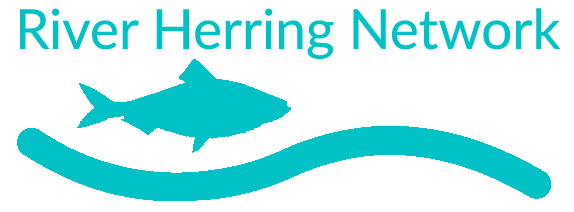On June 12 the River Herring Network held its first evening workshop from 5:30-7:00PM at the Bourne Veterans Memorial Community Center in Buzzards Bay. The intent was to find a time when volunteer wardens who are employed in other fields could attend after their 9-5 workday. Fourteen wardens attended representing eight different towns, along with several MA Division of Marine Fisheries staff members.
Abby Franklin opened the meeting with several announcements including the New England Fisheries Management Council meeting on June 20 in Portland, ME and the three workshops scheduled by NOAA NMFS as part of the data gathering process to evaluate the petition to list river herring as endangered under the Endangered Species Act. More information can be found on these events on the RHN website under “Latest News”.
Brad Chase, Aquatic Biologist with the MA DMF began the program with an overview of the laws governing river herring in Massachusetts including MGL Chapter 130 Sections 19, 47, 50, 94, and 95. He also explained the history and process of developing Memorandums of Understanding between the state and towns in the 1940s to manage the harvest of river herring, and the renewal of many MOUs in the 1980s. Several towns in the state with active herring runs are without MOUs. He outlined how the management of river herring has changed from being managed primarily by the towns and state, to now involving the regional organization of fifteen states called the Atlantic States Marine Fisheries Commission (ASMFC). ASMFC was established in 1947 and recently updated the Fishery Management Plan for Shad and River Herring in 2009. That plan calls for the creation of sustainable fisheries management plans for states that would like their river herring fisheries open for harvest. Brad offered some thoughts on how this process could affect towns that are interested in opening their fisheries after the state moratorium on harvest expires in 2014, and suggested that a future RHN workshop could focus on this upcoming issue.
David Cavanuagh, Chair of the Middleboro-Lakeville Herring Fishery Committee gave an enlightening talk on the history and operations of the seven member town committee. The volunteer group manages the herring run in the Nemasket River which has its headwaters in the Assawompsett Pond complex and discharges into the Taunton River. River herring in this run travel 23 miles to spawn in the largest natural great ponds in the state. David described some of the challenges of providing passage, issuing permits and controlling harvest, and managing water levels in the ponds that are also used as a water supply for the City of New Bedford. The current committee was formed in 1996 and funding for its management activities has come through the sale of herring permits. Since the moratorium the committee has focused its efforts on a counting program and on educating the public about the town’s historic resource.
After an hour and a half of absorbing information you would think people would be ready to go straight home. On the contrary – participants stuck around to ask Brad and David questions, and then all sat down at the table to eat pizza together and continue the conversations.
Stay tuned for news about the next workshop in September and the second annual meeting in October. If you have any ideas for topics please feel free to submit your ideas on the Forum.
Abby Franklin
]]>
